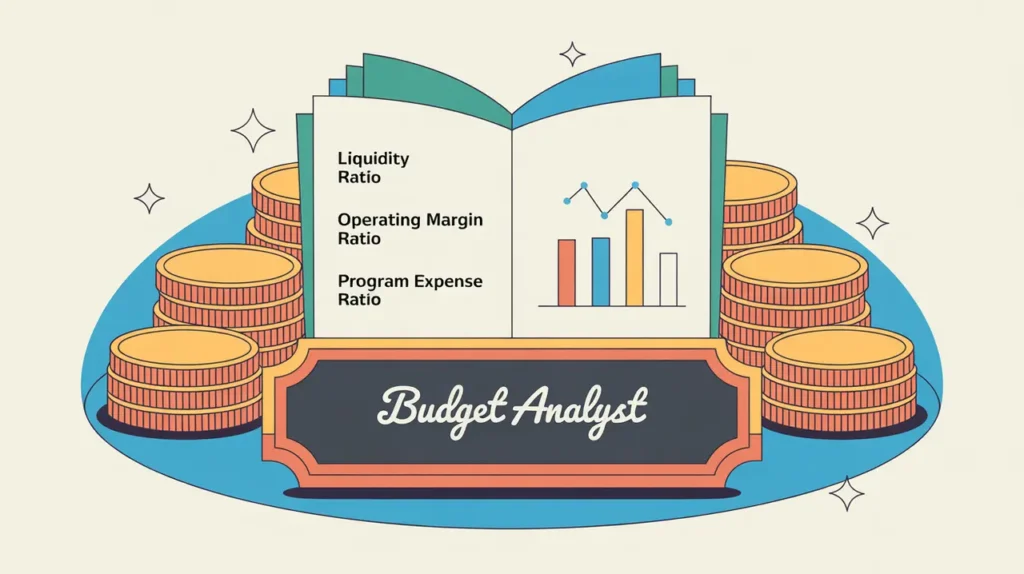What Does the Finance Officer Role Involve?
A finance officer is responsible for managing day-to-day financial operations, ensuring the accuracy of financial records, supporting budget implementation, and ensuring compliance with internal policies and external regulations. This includes processing transactions, overseeing reconciliations, preparing financial reports, monitoring expenditures, and liaising with program and administrative teams to ensure that financial practices align with organizational objectives. The role typically sits within the finance and operations function and acts as a key link between accounting staff, finance managers, and program teams. In both nonprofits and social enterprises, finance officers play a vital role in maintaining financial integrity, supporting decision making, and ensuring resources are managed efficiently.
At What Level does this Role Operate?
Mid Level: This role typically reports to a finance manager, director of finance, or equivalent senior leader. It often involves responsibility for specific financial functions or portfolios and may include supervision of assistants or clerks.
Relative Employability: Finance officer roles are consistently in demand across nonprofits, social enterprises, government agencies, and corporate finance departments. Organizations depend on officers to maintain financial systems, support compliance, and provide accurate financial information for strategic and operational decisions.
Relative Pay Scale: Within nonprofits and social enterprises, finance officer roles sit in mid-level pay bands, reflecting their technical financial responsibilities, cross-departmental coordination, and contributions to organizational accountability.
What are the Key Responsibilities and Activities?
- Manage and record financial transactions accurately, ensuring compliance with policies and regulations
- Oversee reconciliations, including bank accounts, advances, and interdepartmental transactions
- Support the preparation of budgets, forecasts, and financial plans in collaboration with program and operations teams
- Prepare financial reports for internal stakeholders, donors, and regulatory bodies
- Monitor expenditures against budgets and flag variances for follow-up
- Support audits by preparing documentation, responding to queries, and implementing recommendations
- Ensure adherence to donor financial guidelines and organizational policies
- Supervise or provide guidance to finance assistants or clerks as needed
- Liaise with program teams to ensure financial processes support timely implementation
What Core Competencies and Qualifications are Needed?
Required Qualifications and Experience
The following reflect common qualifications and experience expected for this role, while recognizing that pathways may vary by context, organization, and region.
- Academic background in accounting, finance, business administration, or a related field, or equivalent professional experience
- Several years of experience in accounting, financial management, or audit
- Familiarity with nonprofit or social enterprise financial regulations and donor compliance requirements
- Proficiency with accounting software, spreadsheets, and reporting tools
- Strong analytical skills, attention to detail, and problem-solving abilities
- Ability to communicate financial information clearly to non-financial colleagues
Key Competencies
- Financial transaction management and reconciliation
- Budget monitoring and reporting
- Compliance with donor and regulatory standards
- Audit support and documentation
- Financial analysis and problem solving
- Cross-team collaboration and communication
How are AI and Automation Shaping this Role?
An AI-native finance officer will look to AI and automation to enhance the accuracy, speed, and strategic value of financial operations. They can use AI tools to automate reconciliations, flag anomalies in real time, generate draft reports, and support predictive budget analysis. Automation can streamline transaction workflows, integrate financial data from multiple systems, and strengthen compliance monitoring. By leveraging these tools effectively, finance officers can focus more on analysis, strategic support, and risk management.
What Career Pathways and Transferable Skills are Associated with this Role?
Finance officer roles can lead to positions such as finance manager, senior financial analyst, director of finance, or chief financial officer. The skills developed in financial reporting, compliance, budgeting, and cross-team collaboration are highly transferable across nonprofits, social enterprises, corporate finance, and public institutions. This role provides a strong foundation for advancing into senior financial leadership or specialized financial strategy roles.







